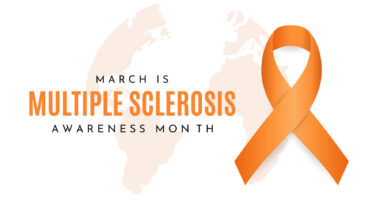 Discussion
Discussion
From the front lines: Perspectives on an MS diagnosis
If you’ve been recently diagnosed with multiple sclerosis (MS), you may wonder whether it’s possible to live a normal life with MS. Sometimes there is comfort in hearing from others in a similar situation and learning from their MS diagnosis stories.
Our columnists at Multiple Sclerosis News Today share their experiences living with MS in hopes of helping others who may be looking for a little guidance or who may benefit from hearing their personal stories. Here is some of their best advice for those who have been newly diagnosed with MS.
Hearing the words: MS
Getting an MS diagnosis is life changing and daily life with MS will be different. Looking back at that moment, Jennifer Powell recalled feeling like it was a dream and wondered what she would have told herself if she could go back in time and “sit next to that frightened girl.” She writes:
“You will be tested. You will be challenged. You will fall over and over, but you will get up more times than you will have fallen. You persevere. You learn to adapt to change and learn that change is your only constant. You create new possibilities as a direct result. Your body will slow, but you will find beauty in your ability to notice that which once went unseen.”
Stages of grief
When diagnosed with a chronic illness like MS, it is not uncommon to go through a grieving process. You are mourning for the life you have and your dreams for the future. Tamara Sellman advises to gift yourself the time you need. She writes:
“If you’re newly diagnosed, the speed in which you cycle through the stages of denial, anger, bargaining, depression, and acceptance may be quick, or it may take some time. Just like MS itself, each grieving process will be specific to the person facing the loss.
Love yourself enough to let yourself pass through each stage like a traveler on a long and harrowing journey. There’ll be blisters, unslakable thirst, boulders, bad weather, and unseen predators while you’re on that road.
Vulnerability may be part of that journey, but so is equanimity, that fine art of maintaining calmness and composure during times of chaos and stress.
Keep your eyes on that horizon.”
Telling someone about your MS diagnosis
Part of the process of coming to terms with a new MS diagnosis is deciding when to tell people. But according to Jessie Ace, there is no one timetable or one right — or even wrong, way. There is only your way. She writes:
“I’m sorry to say that I don’t think there is a ‘right’ way to tell someone about a diagnosis. There are just different ways, which may or may not result in a good outcome. The answer you choose to give people is up to you. It will probably depend on how much energy and patience you have at the time, and on your mental and physical state.
I hated it when people asked me questions like, ‘How are you coping with that MS thing now?’ at a bus stop, in a clothing store, or in another public place where I could not freely burst into tears without being branded as the town lunatic. After my diagnosis, it took nearly four years for me to be able to speak about MS without crying.”
Invisible symptoms
One aspect that makes life with MS particularly daunting is that MS symptoms can come and go. Or, as Cathy Chester explains, sometimes they are not even noticeable to others. She writes:
“Remind others about symptoms that are not obvious or visible. Tell them that sometimes you need to cancel plans because your MS is active. Let them know you care about them, and you’ll reschedule when you’re feeling better. Reassure them that your health must be your priority. Thank them for their compassion and understanding.
Honesty is always the best policy. If you’d rather drive than walk to a store, explain why. If you need to leave a party early because of fatigue, tell the truth. Being honest will teach others about your disease, and is part of your overall wellness plan.”
Helping a loved one through a diagnosis
It can be hard to love someone with MS. You want to do all you can for them, but they may not be ready for your help. According to Jessie Ace, sometimes the best thing you can do for someone after a new MS diagnosis is just to let them know you are there for them. She advises:
- Be aware that your loved one will feel things they can’t explain.
- Your job is not to solve problems, and sometimes just holding them and telling them everything will be OK is enough.
- Understand that your loved one may be feeling confused and scared, so tell them as much as possible that you always will be there for them and that you love them.
Finding acceptance
Eventually you will come to a place where your MS is just one part of your life story. At first, as Beth Ullah experienced, her MS diagnosis eclipsed everything else and had a profound impact on her mental health. But finally, she “made it out to the other side.” She writes:
“Fast-forward three years, and the clouds have parted, and the chaos and confusion have begun to dissipate. The sun is shining through.
I’ve always believed that things happen for a reason. For a long time, I couldn’t see past the cruelty of being diagnosed with MS at 26, as well as the pure torture of its aggression. I’ve learned that one can never have clarity to see the silver linings while in the moment. Only afterward can I now say that it happened for me.”
Multiple Sclerosis News Today is strictly a news and information website about the disease. It does not provide medical advice, diagnosis, or treatment. This content is not intended to be a substitute for professional medical advice, diagnosis, or treatment. Always seek the advice of your physician or other qualified health provider with any questions you may have regarding a medical condition. Never disregard professional medical advice or delay in seeking it because of something you have read on this website.
Recommended Posts
- Ironically, cutting out coffee gave me a boost of energy
- MS Awareness Month events highlight advocacy, education, fundraising
- I’m going to be more open about my invisible scars from MS
- Having parents who smoked increases risk of pediatric MS: Study
- Ocrevus and Tysabri appear to work equally well to control relapsing MS
Related articles
-
 Discussion
Discussion
-
-





